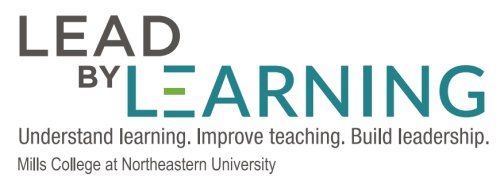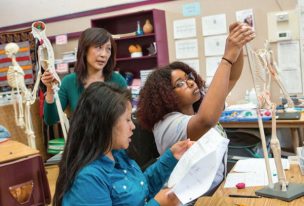Teacher Scholars Spotlight: Student-Generated Rubrics
 Nessa Mahmoudi is beginning her second year as a Mills Teacher Scholar. This year she is a part of the MTS school site group at Melrose Leadership Academy, a dual immersion school in East Oakland. Last year she, along with five colleagues from Melrose Leadership Academy (MLA), participated in the Scholars Group, composed of teams of teachers from different schools.
Nessa Mahmoudi is beginning her second year as a Mills Teacher Scholar. This year she is a part of the MTS school site group at Melrose Leadership Academy, a dual immersion school in East Oakland. Last year she, along with five colleagues from Melrose Leadership Academy (MLA), participated in the Scholars Group, composed of teams of teachers from different schools.
In writing about her inquiry, Nessa writes, “Last year, in my second grade classroom, I had the opportunity to investigate an inquiry question with the support of the Mills Teacher Scholars group. My inquiry focused on the development of student-generated rubrics, self-assessment and reflection on learning. I looked at four students to see how this work in the classroom affected their view of themselves as learners and their motivation and persistence in the classroom.”
One of the initial factors that motivated this question for Nessa was her observation of her student giving excessive attention to getting the right answer. Her hope was that he would have a desire to develop his understanding around the answer and acquire patience with—and awareness of— the learning process.
To make visible how they viewed themselves as learners, Nessa had her students develop rubrics, score themselves with their rubrics, and also asked the students to reflect on their learning. What Nessa found out by looking systematically at these routine data sources over the course of the year was that “Making my teaching and expectations more explicit, through learning targets and rubrics, gave clarity to the students that allowed them all to engage in the content in a deeper, more authentic way. They were able to apply academic language to talk about their learning because it was clear to them what learning we were talking about. Multiple opportunities for mastery and practice reflecting on their learning, also seems to have transformed some of the negative energy around finding the ‘correct answer’ and placing more value on revision.”

